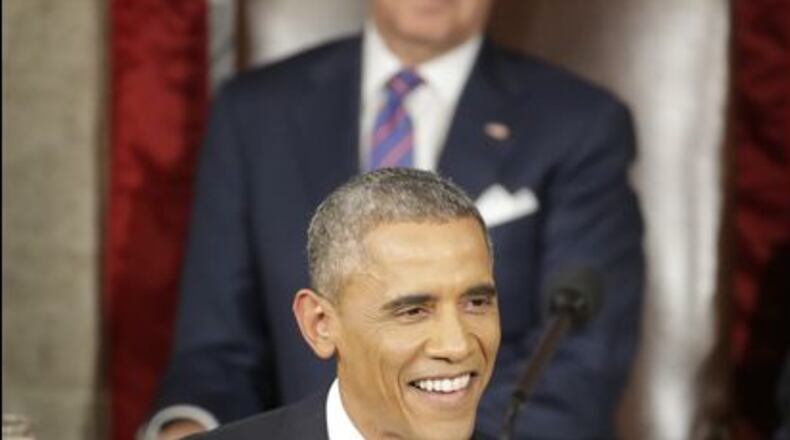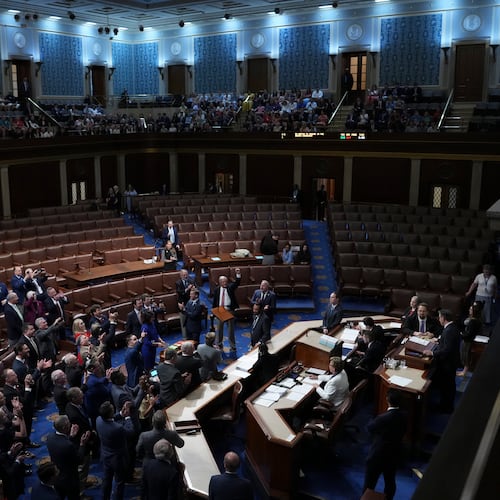President Obama spoke for about an hour last night. If you're the kind of person who reads this blog or others like it regularly, chances are you watched it. If not, chances are you didn't (check the trend ).
Anyway, the president updated the Congress as to the State of the Union because the Constitution says he has to , and he outlined a bunch of ideas that won't go anywhere because that's the way presidents typically choose to fulfill this mandate, particularly when their party is out of power, and especially if their party is out of power because their ideas got a lot of them defeated in elections held just a couple of months earlier. All this took Obama, in his penultimate State of the Union address, about an hour.
And for a few seconds out of that hour, we got to see what he really thinks.
It came toward the end, after paeans to not being "sorted into factions and turned against one another" and "recaptur(ing) the sense of common purpose that has always propelled America forward" and embracing "ideas that are practical, not partisan" and a "better politics" focused on "issues, and values, and principles, and facts, rather than 'gotcha' moments." It came after he made a reference to having "no more campaigns to run," and a few Republicans in the audience offered their predictably mocking approval, and Obama went off-script to jeer back: "I know, because I won both of them."
(Democrats, you'll be glad to know, responded with disapproving looks and gentle reminders about the uniter-in-chief language they'd been applauding all night. Or awkward, silent reflection about their colleagues who used to sit with them at these speeches back when they held the Senate ... and the House.
Just kidding!)
For all Obamas' talk about a "better politics" and memories of his now-10-year-old speech about there not being "a liberal America, or a conservative America ... but a United States of America" -- a speech to which he paid self-referential homage a couple of minutes before his ad-libbed dig -- the campaign, the expressly partisan fight, is the only aspect of the presidency for which Obama has shown anything approach zeal or relish. He seems to regard the periods of governing in between elections the way former NBA player Allen Iverson infamously regarded practice: as something other than the event itself, something other than the reason he stands before us in the first place.
It is instructive that curtain-raising pieces previewing the speech by national news media, no doubt based on how Obama's advisers had been framing the address, indicated the purpose of the speech was not to set the tone for two final years in office working on "practical, not partisan" ideas, but to frame the election, still more than 21 months away, to choose his successor.
That's Obama, to a tee: the hyper-partisan indulging in partisan agonistes.
About the Author
Keep Reading
The Latest
Featured



